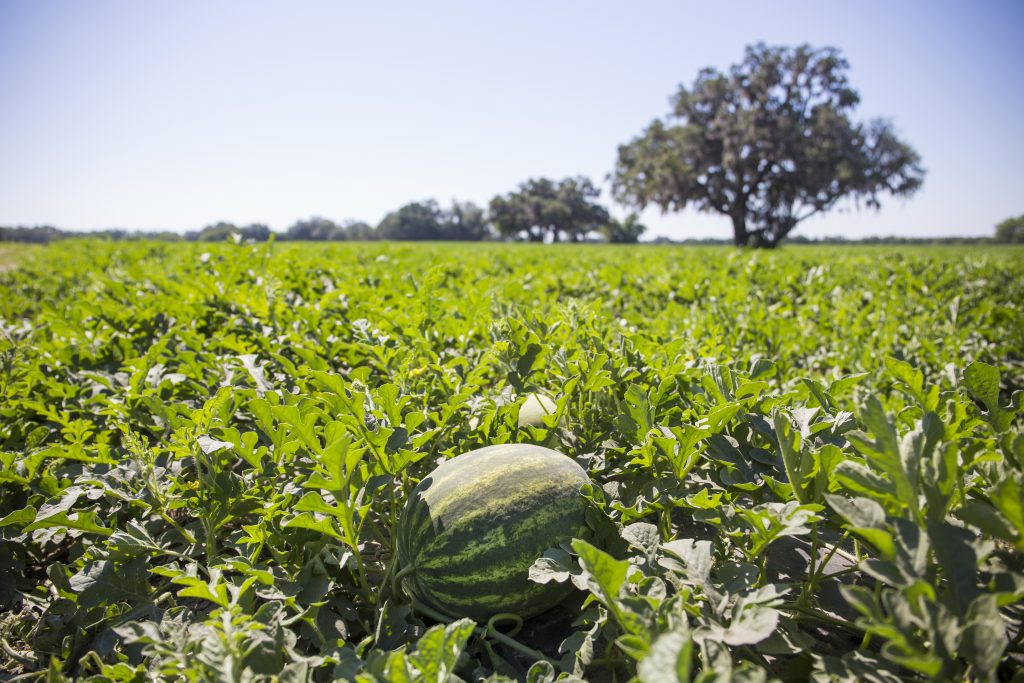By Clint Thompson
Imagine a system in place that would aid watermelon growers in knowing when to apply fungicide sprays for management of foliar diseases. The University of Florida Institute of Food and Agricultural Sciences (UF/IFAS) is conducting research to verify the effectiveness of one such system.

Mathews Paret, UF/IFAS associate professor of plant pathology, discussed MELCAST, a spray advisory system for the management of foliar diseases in watermelon during this year’s Florida Ag Expo in Wimauma, Florida.

MELCAST advises producers to begin their fungicide spray program when the vines touch within a row. Growers can continue their spray plans based upon the environmental factors in that field, such as temperature, relative humidity and leaf wetness.
Paret said an additional 2 to 3 years of research is needed to verify the benefits, which would mean a more judicious use of fungicides being utilized. A potential reduction of applications could help growers avoid any fungicide resistance buildup and save producers money in the process.
“That’s what we are trying to do, to help farmers and help in their production systems either by reduced fungicide applications or improving their economic structure,” Paret said. “The MELCAST system is based upon existing data that’s out there. We could use existing weather station data as one possibility. We also need to add a leaf wetness sensor in the field that you’re planning to do your work.
“We’re using that environmental data; temperature, relative humidity, leaf wetness data as a way to calculate a metric and that metric can be available by inputting this other parameter into an Excel file. That makes you decide whether you want to add a fungicide program into that.”









